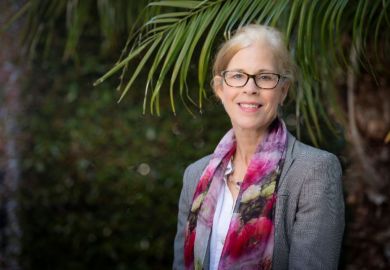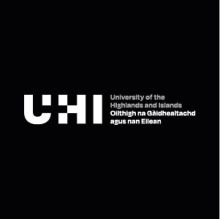Swapping a university leadership role in the Australian bush for one in the Scottish Highlands might seem like a giant leap: for starters, it’s a 10,000-mile trip, while the geography and climate could hardly be more different.
But Todd Walker said that while there are major differences between the University of New England in New South Wales, where he was provost and deputy vice-chancellor for three years, and the University of the Highlands and Islands (UHI), where he has just started as principal, there were a surprising number of similarities.
Both institutions are multi-campus, regional universities that are deeply embedded in their communities.
“The people that work there have a deep passion for the communities in which they reside and they’re looking to build the capability and the capacity of those communities. That’s number one,” said Professor Walker.
“Number two, a student in a regional university doesn’t get lost. It’s important to the university and there is a deep connection between the student and the fabric of the institution. And number three, often those students remain within the regions and they drive the community. A lot of my colleagues at metropolitan universities would miss out on all of that...I have no ambition to go to a metropolitan university.”
Professor Walker, who has worked for more than 20 years in institutions that could be considered to be on the periphery of Australia’s higher education system, including Charles Sturt University and Federation University Australia, added that he was particularly drawn to the mixture of higher and further education at UHI – a feature that was also part of some of his previous workplaces.
“It puts its students first. And I mean that from the perspective of being tertiary. Students get on and get off anywhere across the qualifications framework and get the same student experience,” he said.
However, Professor Walker said that his main priority as leader would be to “transform” the university and make it “more connected, streamlined and sustainable”.
This is partly in response to the first phase of the Scottish Funding Council’s review of colleges and universities, which has called for the country to have “a much more integrated tertiary education and skills system”, where students can easily transition between further and higher education, for example.
But this focus was also down to Professor Walker’s own passion for a blended tertiary model and his belief that the narrative around further and higher education can be too “binary”.
He said it was important for institutions to think not only of students transitioning from further to higher learning, but also the other way round. For instance, at the University of New England, all PhD students were required to undertake a certificate or diploma in project management.
“Why? Because you really get taught how to manage projects, and running a PhD over three or four years is probably the biggest project you’ll do,” he said.
“The idea is that a certificate or a diploma is as important in terms of your education as a PhD; they’re not seen as higher ed and lower ed, they’re seen as a valid level of qualification in themselves.”
The coronavirus pandemic has shifted the notion of place for institutions, but Professor Walker said he thought the mission of regional universities like UHI would become even more important.
“The students we attract come from the regions in which we have a presence, which is really important,” he said.
“We’ve got a flattening economy, we’ve got underemployment, we’ve got unemployment, which is rising, and whenever you see those numbers go up, equally you see engagement back into tertiary institutions. One of the benefits of UHI is you can step into UHI at any part of the qualifications framework, whether in FE or HE, and gain those skills to get back into employment.”
As for the climate, while Covid-19 travel restrictions mean Professor Walker was yet to experience the biting winds at UHI’s college in Shetland – officially the gustiest place in Britain – he insisted that his feelings around the move were closer to excitement than trepidation.
“The weather is just one small component of the role. Yes, I’m sure there will be days when I think: ‘What have I done?’ But you’ve only got to get out and see students and meet staff and get around to realise that you’ve clearly made the right choice.”
POSTSCRIPT:
Print headline: From Oz to Shetland: new v-c on mission to streamline HE and FE
Register to continue
Why register?
- Registration is free and only takes a moment
- Once registered, you can read 3 articles a month
- Sign up for our newsletter
Subscribe
Or subscribe for unlimited access to:
- Unlimited access to news, views, insights & reviews
- Digital editions
- Digital access to THE’s university and college rankings analysis
Already registered or a current subscriber? Login









